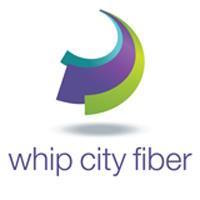
Fast, affordable Internet access for all.

Whip City Fiber has big plans to serve more residents in its hometown of Westfield, Massachusetts, and is already helping some of its neighbors as they seek better connectivity.
Expanding At Home
In February, Westfield City Council unanimously approved the municipal utility’s request for a $15 million bond to fund expansion to more areas of the city. Fiber-to-the-Home (FTTH) connectivity is currently available to approximately 15 percent of the city. The additional funds will allow Westfield Gas + Electric (WG+E) to expand the network to about 70 percent of the community, or about 10,000 additional households. WG+E is planning the expansion on a two-year timeline.
As in the past, WG+E will use the “fiberhood” approach, giving priority to neighborhoods with the highest interest. They will also consider seasonal practicalities and the locations of existing infrastructure. According to their announcement, they will be installing overhead services this month and will begin underground installation when the ground thaws.
As Westfield’s FTTH has grown piece by piece, they’ve had opportunities to work out the rough patches and determine what challenges communities in western Massachusetts may face when they build out Internet networks. Now, WG+E is reaching out to other communities who are looking for guidance.
State Finally Releases Funding
A change in recent policy from the Massachusetts Broadband Institute (MBI) has enabled Westfield and it's neighbors to have a little more control over their telecommunications future.
Since 2014, MBI has grappled with how it intends to distribute $50 million worth of state funding designated for communities in need of better connectivity. After several changes in policy, the agency required rural towns to get approval from MBI for business plans and to work with the organization before they could receive funding. The agency and the state have been widely criticized for its heavy-handed, yet slow-footed approach.
In February, representatives from a number of rural towns let MBI officials know that they were unhappy with the agency’s decision to withhold funds from communities that wanted to work with WiredWest:
Charley Rose of Worthington asked Larkin and the MBI to express support for the concept of regionalization of broadband networks.
"I am completely dumbfounded by the lack of interest in working with an organization that represents the majority of the towns that are affected," Rose said, referring to the MBI's distance from WiredWest.
WiredWest, the cooperative of local communities that has aimed to develop a regional network for several years, expected to receive some of the state and federal funding for the project. In January of 2016, MBI notified the organization and its 44 members that it did not approve of its business plan and so would not release the expected funding to WiredWest. MBI objected primarily to the WiredWest ownership plan in which local communities would not be the sole owners of the infrastructure in their communities.
Over the following year, a number of the small western Massachusetts communities left WiredWest and chose to work within MBI's parameters. WiredWest's 27 remaining member towns intend to continue forward.
In late February, MBI’s board decided that it would now release design and engineering grants directly to local communities that want to build their own last mile networks. After officials from local communities strongly objected, MBI changed course:
"The towns said very clearly that they wanted the state to release the professional service allocation in the form of direct grants, in addition to their construction grants," said [Gov. Charlie Barker Spokesman Paul] McMorrow in a telephone interview Monday [to MassLive].
Even though funds for design and construction will now be released to local decision makers, the prior option of working with MBI for those services still stands. The state agency has new leadership and is partnering with big incumbents such as Charter Communications and Comcast.
Charter and Comcast have their eyes on a few communities that have a "no-risk, no-cost” option. If communities choose to go with one of the incumbents as partners, they don't assume any risk or cost but don't get the benefit of FTTH. If, however, they want to invest in fiber infrastructure that they will own, they can still access their share of the state funding from MBI and issue bonds to meet the required matching funds. They must inform MBI which option they choose by March 24th.
Whip City Raising The Local Bar
Rather than regressing back to the incumbent cable technology, a number of local communities seem to be taking a positive view toward working with WG+E.  The town of Otis has already chosen WG+E to deploy FTTH to is 1,360 residents. At their January Town Board meeting, they reported that WG+E is making progress readying poles and preparing the town’s network design. The minutes also report that the community had been awarded $1 million from MBI for construction and that they are planning to have WG+E operate their municipal network.
The town of Otis has already chosen WG+E to deploy FTTH to is 1,360 residents. At their January Town Board meeting, they reported that WG+E is making progress readying poles and preparing the town’s network design. The minutes also report that the community had been awarded $1 million from MBI for construction and that they are planning to have WG+E operate their municipal network.
Whip City is embracing its new role as a mentor and agent. At a February MBI forum to introduce potential last mile network partners to towns receiving broadband funding, local officials were keenly interested. According to the Berkshire Eagle, attendees at the forum had positive reflections on Westfield's presentation:
"Game changer," the Charlemont delegate said.
"Far and away the best proposal," added a Goshen Select Board member.
"They have a lot going for them and believe in fiber," said Mary Ellen Kennedy, representing New Salem.
At a similar March meeting in Charlemont, WG+E’s Aaron Bean told another group of leaders from local communities about Westfield’s proposal. They’d like to serve as other towns’ project managers to oversee design and deployment and would consider working with towns individually or a group of towns for a regional project. If the towns want WG+E to also act as their Internet Service Provider (ISP) they could enter into a longer contract.
Bean said the company could oversee the design and build-out, then run the network for towns that want it. “For those who continue on with us, that’s great,” he said. “If you go on your own, that’s fine, too.”
Image of the Stanley Park Duck Pond courtesy of the Stanley Park nonprofit organization.
